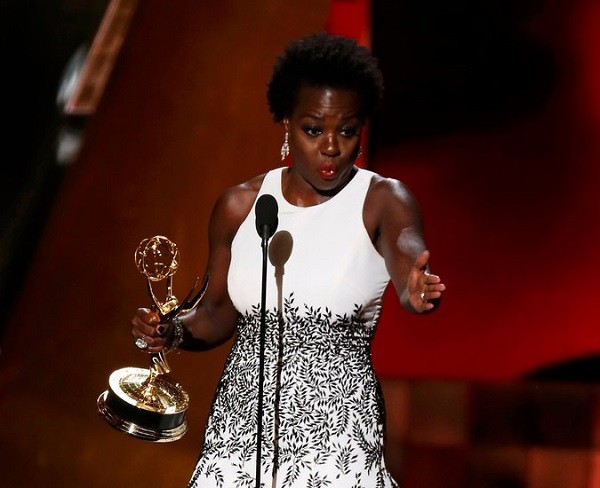While "How to Get Away With Murder" star Viola Davis created history when she became the first African American woman to win an Emmy in the category of Outstanding Actress in a drama series, she also created a hive of discussion over her acceptance speech which gave a voice to pressing issues in the industry for the lack of diversity in TV.
Davis won over stiff competition from Claire Danes of "Homeland," Taraji Henson of "Empire," Robin Wright of "House Of Cards," and Tatiana Maslany in "Orphan Black," according to E! News.
The speech made at the 67th Emmy Awards by Davis has drawn criticism as well as counter criticism with many critiques saying her speech has drawn out the real "white feminists" in Hollywood.
The speech which has been deemed as a classic calls for more opportunities for African American women to be encouraged by roles in the industry. Davis was quoted as saying what separates women of "color" from others is opportunity. Adding, "You cannot win an Emmy for roles that are simply not there."
One actress who found the comments uncomfortable took to social media to air her views. Actress of "General Hospital" fame Nancy Lee Grahn said on twitter that the award ceremony was not the venue for "racial opportunity" and that Davis has never been discriminated against.
No sooner had the comment been aired it began earning a following of offended viewers and become a trending topic on twitter and soon enough Grahn quickly tweeted an apology saying her words had been badly phrased.
To some observers of the twitter banter between Grahn and followers her remarks resemble those of "white feminism," according to the Los Angeles Times.
Author of feminist pop culture blog BattyMamzelle, Cate Young told the publication the term refers to those who are aware of sexism but fail to "consider race as a factor in the struggle for equality."
Grahn has since apologized repeatedly and agreed to look up "intersectional feminism."



























